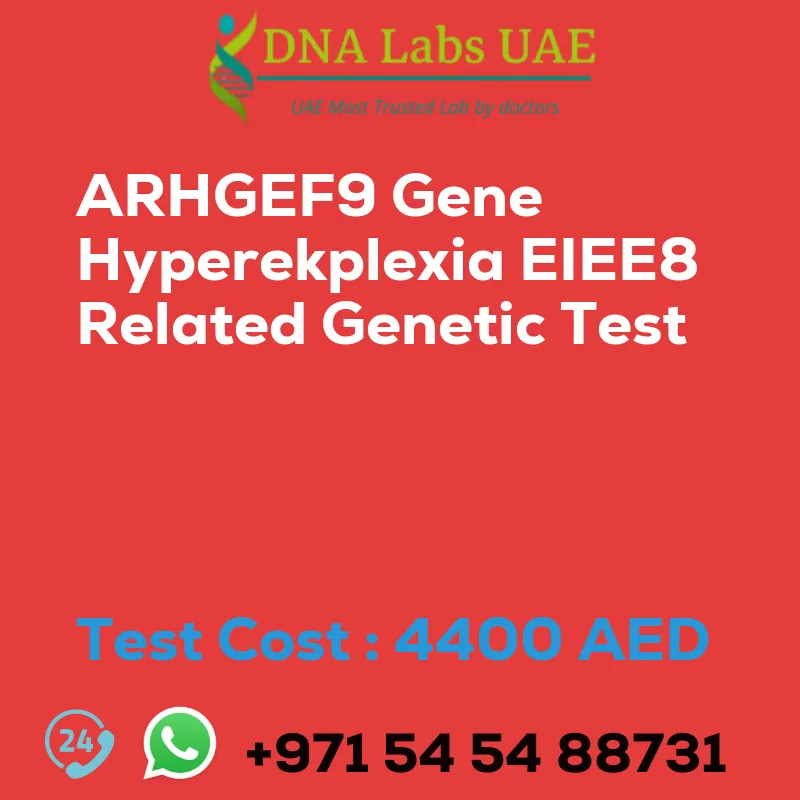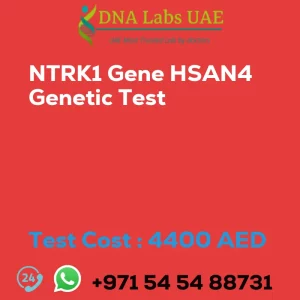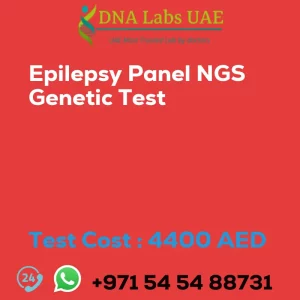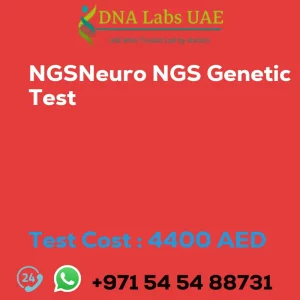ARHGEF9 Gene Hyperekplexia EIEE8 related Genetic Test
Test Details
The ARHGEF9 gene is associated with two different genetic disorders: Hyperekplexia and Early Infantile Epileptic Encephalopathy 8 (EIEE8). Hyperekplexia, also known as startle disease, is a rare neurological disorder characterized by an exaggerated startle response to unexpected stimuli. This can cause muscle stiffness, falls, and in severe cases, even life-threatening events. Mutations in the ARHGEF9 gene have been identified as a cause of hyperekplexia. EIEE8 is a type of early onset epilepsy that typically presents in the first few months of life. It is characterized by seizures, developmental delay, and intellectual disability. Mutations in the ARHGEF9 gene have also been associated with this disorder.
Test Components and Price
- Test Name: ARHGEF9 Gene Hyperekplexia EIEE8 related Genetic Test
- Price: 4400.0 AED
Sample Condition
Blood or Extracted DNA or One drop Blood on FTA Card
Report Delivery
3 to 4 Weeks
Method
NGS Technology (Next-Generation Sequencing)
Test Type
Neurological Disorders
Doctor
Neurologist
Test Department
Genetics
Pre Test Information
Clinical History of Patient who is going for ARHGEF9 Gene Hyperekplexia, EIEE8 related NGS Genetic DNA Test. A Genetic Counselling session to draw a pedigree chart of family members affected with ARHGEF9 Gene Hyperekplexia, EIEE8 related.
Test Procedure
The NGS genetic test for ARHGEF9 gene-related disorders involves obtaining a DNA sample, typically through a blood or saliva sample, from the individual being tested. The DNA is then sequenced using NGS technology to identify any mutations or variants in the ARHGEF9 gene.
Importance of Genetic Testing
The results of the test can help in confirming a diagnosis, providing information about disease prognosis, and guiding treatment options. It is important to note that genetic testing should be done under the guidance of a healthcare professional or genetic counselor who can interpret the results and provide appropriate counseling and support.
| Test Name | ARHGEF9 Gene Hyperekplexia EIEE8 related Genetic Test |
|---|---|
| Components | |
| Price | 4400.0 AED |
| Sample Condition | Blood or Extracted DNA or One drop Blood on FTA Card o |
| Report Delivery | 3 to 4 Weeks |
| Method | NGS Technology |
| Test type | Neurological Disorders |
| Doctor | Neurologist |
| Test Department: | Genetics |
| Pre Test Information | Clinical History of Patient who is going for ARHGEF9 Gene Hyperekplexia, EIEE8 related NGS Genetic DNA Test A Genetic Counselling session to draw a pedigree chart of family members affected with ARHGEF9 Gene Hyperekplexia, EIEE8 related |
| Test Details |
The ARHGEF9 gene is associated with two different genetic disorders: Hyperekplexia and Early Infantile Epileptic Encephalopathy 8 (EIEE8). Hyperekplexia, also known as startle disease, is a rare neurological disorder characterized by an exaggerated startle response to unexpected stimuli. This can cause muscle stiffness, falls, and in severe cases, even life-threatening events. Mutations in the ARHGEF9 gene have been identified as a cause of hyperekplexia. EIEE8 is a type of early onset epilepsy that typically presents in the first few months of life. It is characterized by seizures, developmental delay, and intellectual disability. Mutations in the ARHGEF9 gene have also been associated with this disorder. NGS (Next-Generation Sequencing) genetic testing is a type of genetic testing that uses high-throughput sequencing technology to analyze multiple genes simultaneously. In the case of ARHGEF9 gene-related disorders, NGS testing can be used to identify mutations or variants in the ARHGEF9 gene that may be causing hyperekplexia or EIEE8. The NGS genetic test for ARHGEF9 gene-related disorders involves obtaining a DNA sample, typically through a blood or saliva sample, from the individual being tested. The DNA is then sequenced using NGS technology to identify any mutations or variants in the ARHGEF9 gene. The results of the test can help in confirming a diagnosis, providing information about disease prognosis, and guiding treatment options. It is important to note that genetic testing should be done under the guidance of a healthcare professional or genetic counselor who can interpret the results and provide appropriate counseling and support. |








